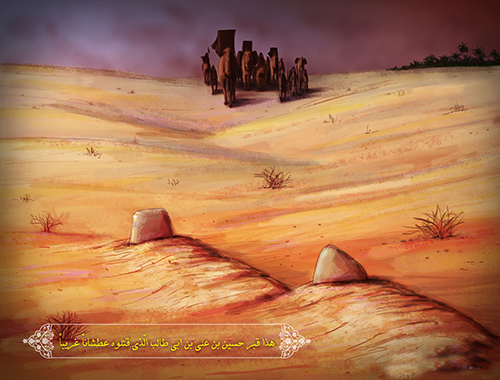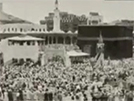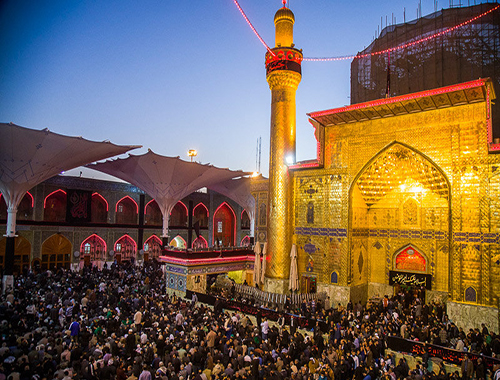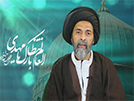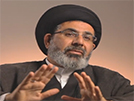Detailed Answer
- Details
- Hits: 2297
Detailed Answer
The answer to this question will be clarified by examining three philosophical perspectives—that of Masha’ (Peripatetic Philosophy), Ishraq (Illuminationist Philosophy), and Hikmat al-Muta’aliyah (Transcendental Philosophy), as well as the opinions of Kalam (Theology), and ‘Irfan (Mysticism). Each of these will be discussed in further detail depending on the availability of resources and sometimes quoting from authorities in order to further clarify the topic. It should be noted a perusal of the works of Ibn Sina reveals the fact that he did not offer any logical proof for resurrection. He was of the belief that the only reason to affirm the reality of resurrection was its confirmation by the Prophet—after which he saw no need for a logical proof. However, he did express his opinion on other topics related to the afterlife.
But now, as to the scholars of Kalam, a brief quotation from them will suffice to illustrate their opinion with regards to the resurrection:
Since mankind is composed of a body and a soul, the conditions of his return to the next world can be discussed from both a physical and a spiritual sense. In general, any discussion on resurrection can be divided into two sections: proving resurrection and its necessity, and the manner in which it occurs—whether physical, spiritual, or both.
Philosophers have generally either not given much attention to the first section or have paid more attention to the manner in which resurrection occurs—concentrating on its physical dimension even though they may accept both physical and spiritual resurrection. This is because physical resurrection has typically been more controversial. In line with this, the subject of resurrection in this question can be divided into four main topics:
a. The concept of resurrection
1. Returning to the original abode
2. Death after life and life after death
3. The creation of another world similar to this world and the gathering of all mankind from the first to the last.
4. Return of the soul to its origin
5. Transfer of the soul from this world to the next
6. Gathering of individual souls within the collective soul (Allah)
7. Resurrection meaning the rising of the people from their graves in the afterlife when Allah will judge their deeds and the angels will enter in rows upon rows
One of the conclusions that can be reached from the above points is that the fundamental condition of resurrection is being transferred to the next world. Hence, subjects such as death, survival of the soul, eternal life and etc. are only preliminary discussions.
b. Possibility of resurrection and its occurrence
It is senseless to discuss any topic unless and until its possibility has been proven. Whether it is proven through the proof of something that is its kind, or through the proof of something that supercedes it. The creation of another world is either like creating this world, or it is even easier. The very existence of this world is indicative of the possibility of the existence of such a world, and hence the possibility of the existence of a similar world, meaning the next world. Thus we can discuss the occurrence of the next world and resurrection.
c. Claims and descriptions of resurrection and the circumstances of its occurrence
According to Mulla Sadra, many scholars, philosophers and a group of scholars of Kalam believe in both a physical and spiritual resurrection based on the return of the soul to the body.[186] He also introduces his belief as the return of the same identical body to its soul and believes this to conform to both logic and religion. He believes that disagreeing with this is blasphemy (kufr) and is denying the text of the Noble Qur`an.[187]
Meeting in resurrection; the body of the dead is returned with its same parts so that if someone sees him, he says that this is the same person that was in the previous world.[188]
According to the principles of Mulla Sadra, man although one, has three realms and dimensions in which he subsists: sense, imagination, and intellect. Man’s existence is initially material and of the order of the natural world, but with its development it becomes spiritual and then goes on to become the intellectual being that is of the next world. All three bodies pertain to the same single individual and are akin to the changes that occur in a person from childhood to old age. What personifies the body is the soul and the soul is one. Therefore, the body of the next world is the same body from this world that has reached perfection.
However, according to the scholars of Kalam, the return of the body occurs through the gathering of the physical parts of the body and reintegrating them into one whole. These body parts have unique characteristics due to the fact that they possess one unique soul. As a result, by the will of Allah each body is recreated from its own parts. After this stage the body rejoins the soul and the same worldly human is recreated.
Even though Ibn Sina believed in both a physical and spiritual resurrection, he was unable to provide a logical argument for physical resurrection and obtained his belief from religion; conversely as for spiritual resurrection, he believes it is verifiable through logic and presents it with logical arguments.
Shaykh al-Ishraq does not believe in physical resurrection, namely the resurrection of the body alongwith the soul. Instead, he believes in a body of the world of purgatory (Barzakh) and that the soul returns to its origin because of its love for it—returning once again from the disarray of the lower world to the world of light.
d. Proof of resurrection
1. Logical reasons extracted from the Qur`an:
a. Allah is the Truth and does not do anything in vain. An aimless world is vain. Thus, a world in motion must have a goal toward which it is moving and in which it will find its rest; this world of rest is the world of resurrection.
b. The All knowing Allah never does anything that contradicts His wisdom and justice and because this world is not able to provide what is just for a believer and a disbeliever, there must be a day on which all receive justice for their deeds.
c. A concomitant result of the mercy of Allah is that mankind eventually reaches perfection. Hence, there must be a resurrection so that mankind can reap the benefits of his deeds and reach perfection.
d. The Almighty Allah who created mankind in the first instance is most certainly capable of creating the same humans a second time.
e. When a seed is placed in the earth and water and earth surround it, logically it should decompose; instead it opens and splits into a root, which penetrates the ground, and a sprout, which grows out of the ground. This is a sign of the power of Allah and His infinite wisdom, something that is also capable of bringing about the resurrection.
2. Logical arguments
a. According to the Mulla Sadra and his Hikmat al-Muta’aliyah: In his Asfar, Mabda’ wa Ma’ad, and Shawahid al-Rububiyyah he mentions certain principles which are either altogether or for their most part specific to his own philosophy. He goes on to declare the actuality of physical and spiritual resurrection on the following basis: Although the properties of the body change, the soul remains the same and is what personifies the body. Thus the body and soul of this world are resurrected.[189]
b. Existence is good and awareness of it is also good. The more
complete an existence, the greater the good. Thus the existence of intellect and cognition is nobler and its contentment greater. The pleasure obtained from understanding is indescribable. This is because intellection is more intense vis a vis perception, the perceiver and the perceived that sense perception. However, this greater good is not attained when the soul is dependent on the body and it will only be achieved when this restriction is removed.[190]
c. When the soul reaches a level where its dependence on the body is lessened and its attention towards the afterlife is greater, it will separate from the body through a natural death. This separation is not because the body is incapable of keeping the soul but instead due to its natural attraction to the other world. If this were not the case, the body’s incapability to keep the soul would have been more evident at the beginning of its creation.[191]
d. Mankind has been created with great intricacy and detail. A high-ranking angel has worked his mould for forty days. It seems very illogical that Allah would be content with his annihilation; instead He wills that mankind leave this low status towards a noble station.[192]
e. Return of the soul to its origin is a necessity of the phrase ma’ad or “return”. Return means going back to where one came from.[193]
f. Perspective of Shaykh al-Ishraq: The desire of the soul towards its origin is greater than towards its own body. The more it disassociates from the material, the greater its desire towards the other world. If the body is defeated, at the moment of death, the soul returns to its origin. For the soul, there is no greater joy than achieving perfection. If the soul does not achieve this because of being busy with the body and the material, after separating from the body, all the facts will be revealed to it and the blessings of Allah will rain down on him.[194]
g. Pespective of scholars of Kalam: Religions sent from God have promised rewards and punishments for good and bad deeds. However, Allah’s justice is not fully realized in this world alone. Hence, there must be another world, which is deserving of this realization.
h. Gnostic’s perspective: Allah is certainly worthy of the manifestation of all His blessed names and qualities. There is an appropriate time and place for each blessed name and quality. The full manifestation of blessed names such as the Returner, the Giver of Life, the Gatherer, etc will occur in the next world.
3. Natural or innate reasons for resurrection
a. The source of all fundamentals and branches of religion is from one’s nature; otherwise there wouldn’t be any coherence between creation and its guidance.
b. The ultimate desire of mankind is not the material world. This is true since by reaching it, the desire does not dissipate. Human nature is focused on achieving perfection. After traveling through the various stages of life, man’s attention will be on the afterlife and his potential will reach its limit and he will return to his origin.
c. The desire for everlasting existence is natural; otherwise mankind would never fear death. All the natural desires of mankind are so that he can reach perfection and have wisdom to them. The wisdom in this is the existence of another world, since this world is not deserving of eternal life.
d. The fear of death and what is associated with it has clearly shown itself throughout history and is a sign of mankind’s natural desire for eternal existence.
Notes:
[186]Al-Mabda` wa al-Ma‘ad, pp. 488-489
[187]al-Mabda` wa al-Ma‘ad, pg. 490
[188] Ibid.
[189]al-Asfar al-Arba‘a, vol. 9, pp .185-197
[190] Ibid. pp. 121-123
[191]al-Mabda’ wa al-Ma’ad, pg. 527
[192] Ibid. pp. 526-527
[193] Ibid. pg. 528
[194]Hikmah al-Ishraq {Farsi Translation}, pp. 367-368

